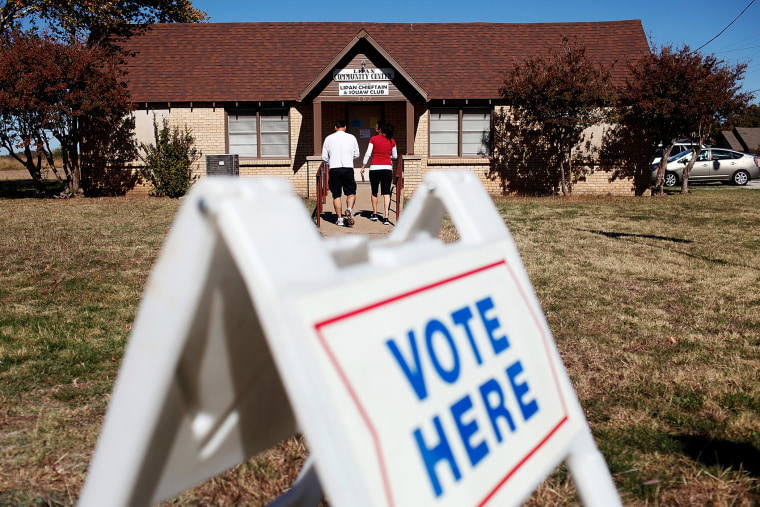Sammie Louise Bates moved to Texas from Illinois in 2011. She wanted to vote last year, but all she had was an Illinois identification card, and under Texas’s strict voter ID law, that wasn’t acceptable. To get a Texas ID, Bates needed a birth certificate from her native Mississippi, which cost $42. That was money that Bates, whose income is around $321 a month, didn’t have.
"I had to put $42 where it would do the most good," Bates, who is African-American, testified Tuesday, the first day of the trial over Texas’s ID law. "We couldn't eat the birth certificate."
Another witness, Calvin Carrier, described the difficulties his father, a Korean War veteran, had in obtaining an acceptable ID, thanks to errors on his birth certificate.
Myrna Perez, the deputy director of the Brennan Center for Justice, whose lawyers are among those arguing the case for the plaintiffs, said those witnesses were there to show that “there are real people out there who don’t have the ID that’s needed. When you are limited income, it can be very challenging to scrape up the money that you need for the underlying ID, and it requires a tremendous amount of hoops to go through.”
The ID law, passed in 2011 by Republicans, was struck down the following year by a federal court, which ruled that it was racially discriminatory. But it was reinstated last year after the Supreme Court weakened the Voting Rights Act (VRA) in Shelby County v. Holder. It’s now being challenged by the Justice Department and civil rights groups under a different part of the VRA that was unaffected by Shelby.
Advocates for the law’s challengers said they’ll show over the course of the 2-3 week trial that the measure represents a serious burden on the right to vote, and that it affects African-Americans and Hispanics at a far higher rate than whites. Not only do they want the law struck down, they also want Texas’s voting laws to be put back under federal supervision, as they were before Shelby.
Perez said her side plans to call more witnesses who lack ID, or who assist other voters who lack ID. They also will call expert witnesses to offer data on the number of Texans who don’t have ID, to give historical and socio-economic analysis, and to talk about the travel burdens involved in getting ID. Many Texas counties have no ID-issuing office, meaning residents might have to travel as much as 250 miles round trip.
Different figures have been cited for just how many Texans lack ID, But the Brennan Center says it will show during the trial that the number is roughly 1.2 million. It also will show that Hispanics in Texas are 2.4 times more likely than whites to lack ID, and African-Americans are 1.8 times more likely than whites.
Texas argued Tuesday that Americans need ID to do a lot of activities, like boarding a plane and cashing a check. And it said the law is needed to prevent voter fraud. But Perez said Lorraine Minnite, a political science professor, will testify on the minuscule rate of voter fraud.
Lawyers for Texas also said the state has opened mobile centers to help people get ID. But the plaintiffs noted that as of the end of June, just 266 people had received IDs that way. The state’s Department of Public Safety last week told msnbc that number was now up to 279.
